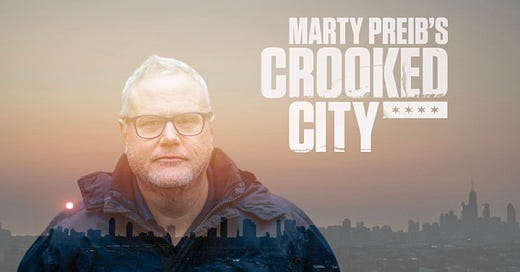Former Head of Police Oversight: “I Will Testify on Behalf of Officers in Fatal Shooting”
COPA’s Andrea Kersten faces squaring off with predecessor Scott Ando in review of March fatal police shooting
The former head of the civilian oversight agency for the Chicago Police Department stated Wednesday that he would testify on behalf of any police officers charged with misconduct in a high-profile shooting that left the offender dead and one officer wounded.
Scott Ando, who headed the city’s oversight agency from 2014 to 2015, stated he would be willing to testify at any police board hearing that could take shape from an investigation by the city’s current oversight agency, COPA, led by Andrea Kersten, into the March 21 shooting death of Dexter Reed.
Kersten has generated widespread criticism for her statements before and after the release of police body-worn recordings of the March 21 shooting. That criticism has arisen from some aldermen as well as the newly appointed superintendent of the police department, Larry Snelling. Ando has joined in the chorus of public servants questioning Kersten’s actions and statements. He has gone one step further, stating he will testify on behalf of the officers if called to do so.
“The shooting is completely within policy and completely justified,” Ando said.
“As such, if COPA were to recommend discipline for these officers relative to the shooting, I would gladly testify on their behalf before the Police Board, an arbitrator, or the court,” Ando said.
Should COPA proceed with recommending the officers be disciplined, Ando’s testimony would pose a striking contradiction to any theories posited by Kersten’s administration. Ando’s testimony would no doubt bolster police sentiment that COPA has evolved over the last decade to the point that it engages in a kind of “lawfare” against the police, rather than fairly evaluating police shootings. Indeed, the union that represents police officers, the Fraternal Order of Police, has been fighting for four years to obtain the right of arbitration as a means to escape COPA’s bizarre rulings and recommendations.
If a current and former head of the agency cannot agree, isn’t it a sign that the police union is right in seeking the rulings of an independent third party through arbitration?
A recurring complaint among police officers and the police union is the suspicious leaks to the media by COPA, which have bolstered cases against officers. Kersten’s media tour in the wake of the released shooting video intensifies that sentiment.
A potential further sign of collusion between COPA and the media is the media’s willingness to censor COPA scandals. The agency ruled, for example, that officers Larry Lanier and David Taylor should be fired for the 2018 fatal shooting of gun-wielding gang member Terrell Eason on the city’s West Side. COPA’s investigation included citing the officers for not remembering to turn on their cameras when coming upon a predator armed with a gun. Superintendent David Brown disagreed with COPA’s findings and said the shooting was justified.
But then COPA’s investigation was undermined in a more ominous manner. No doubt anticipating a large payout from the city, Eason’s family marched into federal court and filed a lawsuit against the officers, a lawsuit that could only be bolstered by COPA claiming that the shooting wasn’t justified.
Federal court Judge Joan Lefkow dismissed the lawsuit on summary judgment, claiming the actions of the officers were lawful.
“There is, however, ample authority that is more closely analogous to the officers’ use of deadly force here that suggests that their actions were objectively reasonable,” Lefkow stated in her ruling, which made a mockery of Kersten’s COPA.
Fortunately for Kersten, the media ignored this bombshell ruling, the media now establishing a long pattern and practice in Chicago of simply ignoring in concert any development that challenges their manufactured anti-police narratives.
Ando also has criticism for Kersten and the media’s preoccupation with the number of shots fired by officers in response to Reed shooting and wounding one officer from the inside of his vehicle after it was pulled over:
“And regardless of the number of rounds fired, we were all taught to shoot until the threat was eliminated. There are many significant dynamics that come into play in an officer-involved shooting, including an individual’s perception as to when that threat is eliminated, and fear. If you have never been shot at, you simply have no idea what that is like. I have, I do . . . I remind everyone to read and understand the prevailing SCOTUS case law—Graham v. Connor and Tennessee v. Garner—before passing judgment. Given the facts as I know them at this time, I would not recommend discipline for any officer involved in this shooting.”
Martin Preib is a retired Chicago Police officer. An author of three books, The Wagon and Other Stories From the City, Crooked City, and Burn Patterns, Mr. Preib’s written work has also been published in Playboy, Virginia Quarterly Review, New City, and Tin House. For his essay appearing in Virginia Quarterly Review, Mr. Preib was awarded the Staige D. Blackford Award for Nonfiction in 2005. In addition to his role with the City of Chicago, Mr. Preib served as the Second Vice President of the Fraternal Order of Police Lodge 7.





